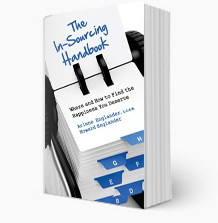I often cite this true story about Mahatma Gandhi. Amid his daily workday which typically started early and ended late, Gandhi routinely took an hour off from his demanding schedule for rest and reflection. During hectic days when the pressure escalated and stressful appointments and meetings stretched wall to wall and became extremely frenetic, he took two hours.
For so many of my clients caught up in a digital world resounding with anxiety and acrimony, addicted to work – as insidious as a lethal drug – and caught up in lifestyles overwrought with tension and stress, Gandhi’s story is more than anecdotal, it is an essential alarm bell. The message is crucial: time set aside for repose and relaxation is not an indulgence, it is necessity for a well-balanced, healthy life.
Our batteries simply must be recharged at regular intervals.
Stress, when it continues unchecked and becomes chronic, can cause a range of troubling symptoms and lead to a wide variety of physical and mental disorders. Time off is critical; we must give ourselves permission to take the ramp off the fast lane for a rest stop, however brief. Rest and a few minutes of calm will enable us to get back on the road, revived and recharged.
What a relief it is when we shut down the computer and tune out the din of traffic and allow the tick of the clock and the pace of our stride to remind us of the essential importance of time and distance. When we sit in silence, our inner voice can be heard; the silence leading to stillness (there is a subtle difference in meaning) and a transcendent peacefulness that enables us to hear what is going on inside of us.
Converting negative to positive energy is fundamental spiritual healing, but there also is a genuine, physical health concern when stress is chronic to our lifestyle.
Surf the internet and you’ll find a lengthy list of studies to drive the point home. Some examples:
• If stressful conditions continue too long, memory problems and mild cognitive impairment can result. The body starts to react as secretions from the adrenal glands increase; heartbeat rates amplify, and blood pressure rises.
• Men who vacationed regularly were more than 32% less likely to die from a heart attack. For women who vacation regularly, that figure jumps to 50% less likely to die from a heart attack. (2010 Framingham Heart Study).
• A field of research called psychoneuroimmunology finds stress and its adrenal dysfunction can alter your immune system and increase your chance of getting infections like colds and the flu, as well as more serious conditions such as irritable bowel syndrome. Some researchers even believe that long-term stress may partially contribute to cancer.
• Studies have shown that high cortisol levels associated with stress create a negative feedback loop in the brain and lower levels of sex hormones like testosterone, contributing to loss of libido.
• Neuroscientists have found that stress hormones such as cortisol are linked to increased belly fat and weight gain, which is linked to heart disease.
• And last, but not least, chronic stress is believed to accelerate biologic aging and the aging process.
Gandhi was a wise man! Join me in a long, collective OOOMMMMMM, breathe in for a count of four, exhale to a count of six and click on the link to Travelocity!
With love and light… and calm,
Arlene Englander, LCSW
312-236-7636

